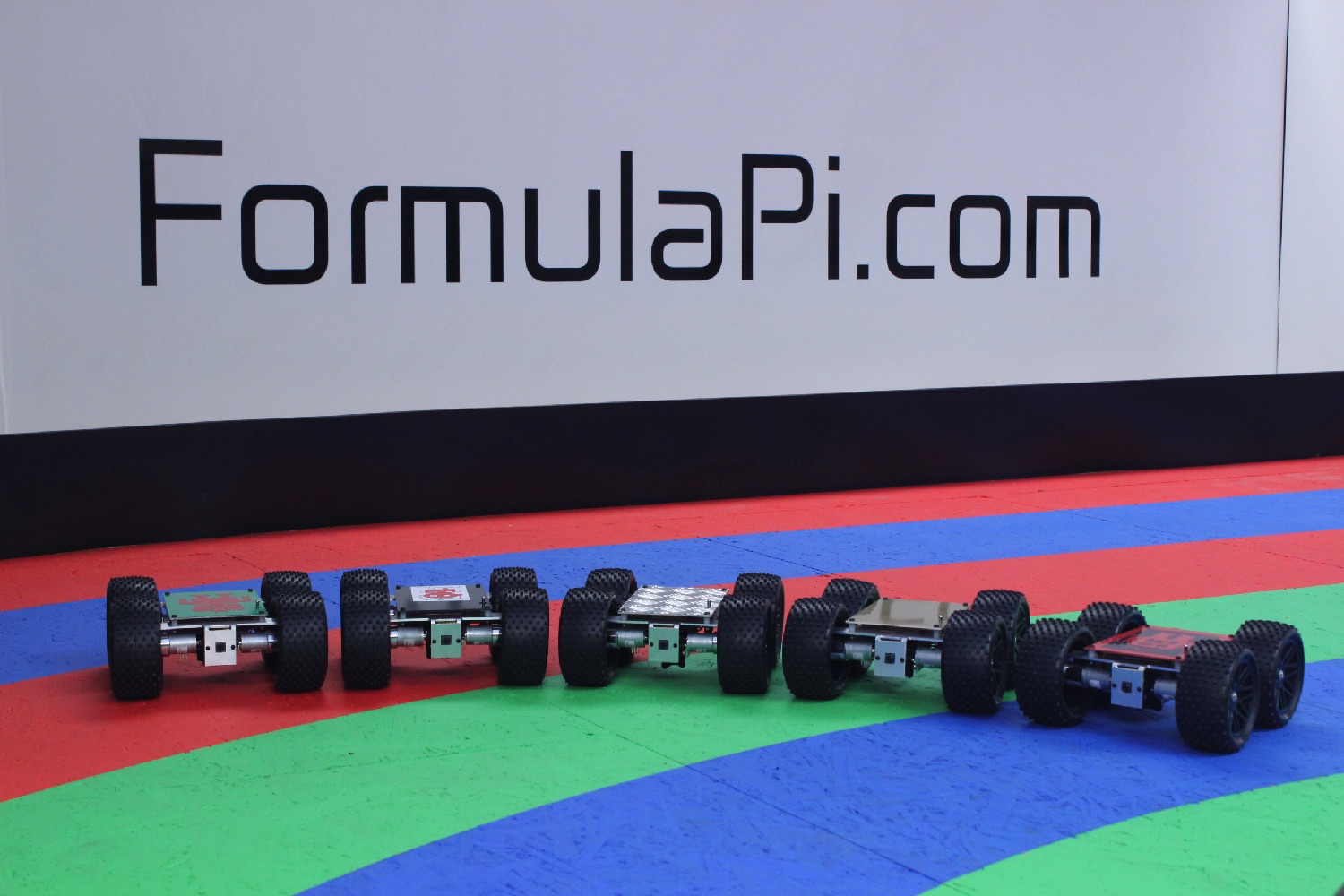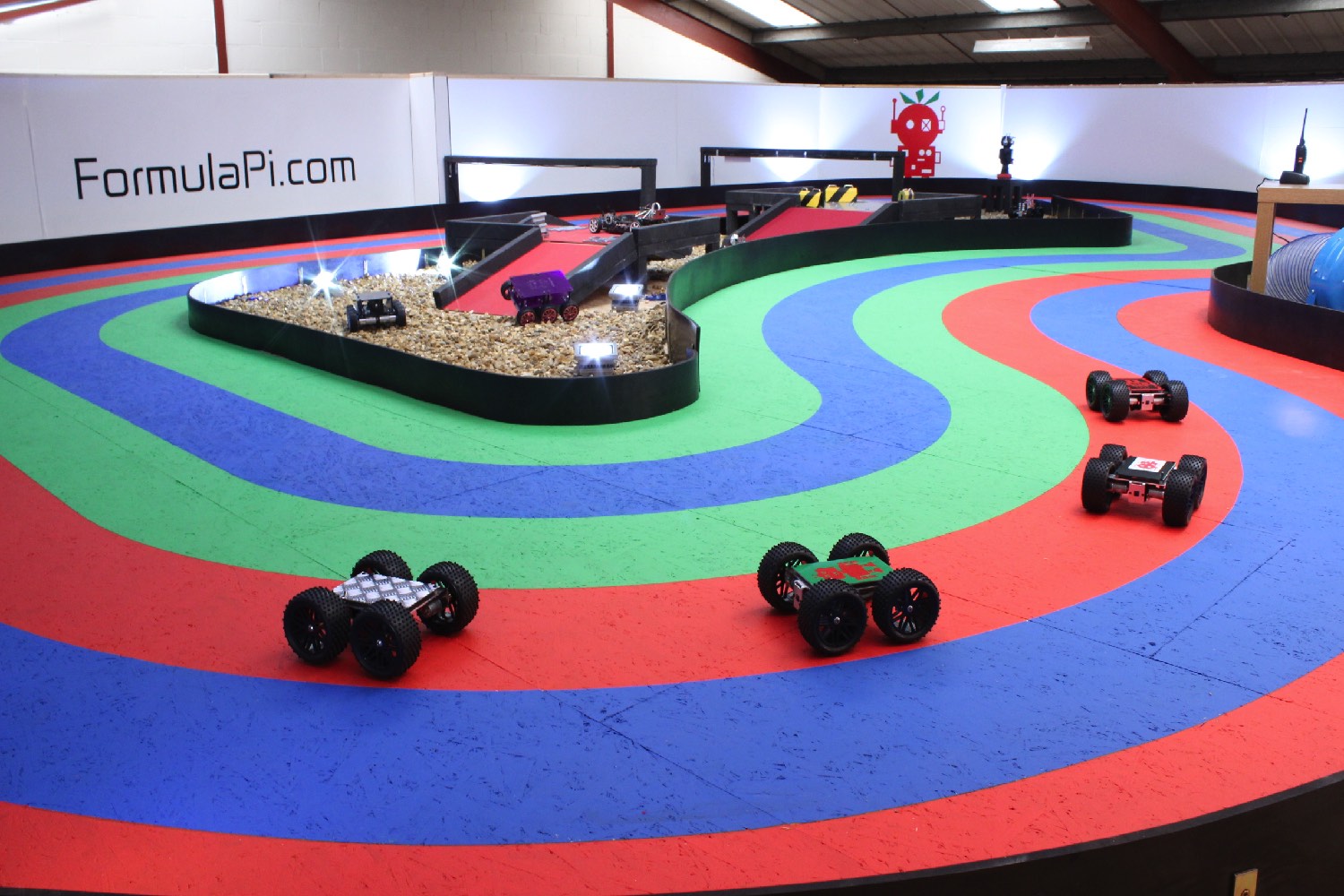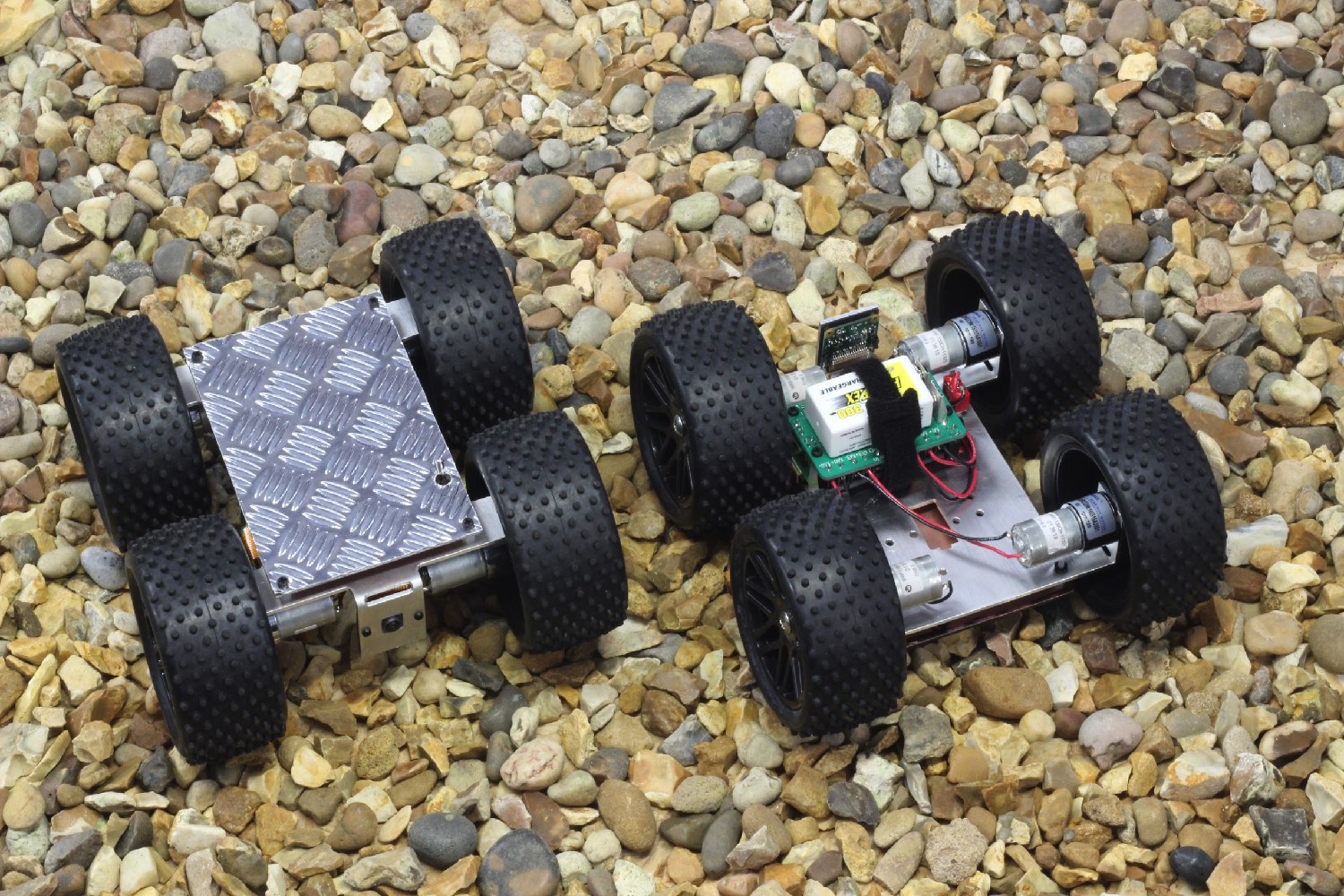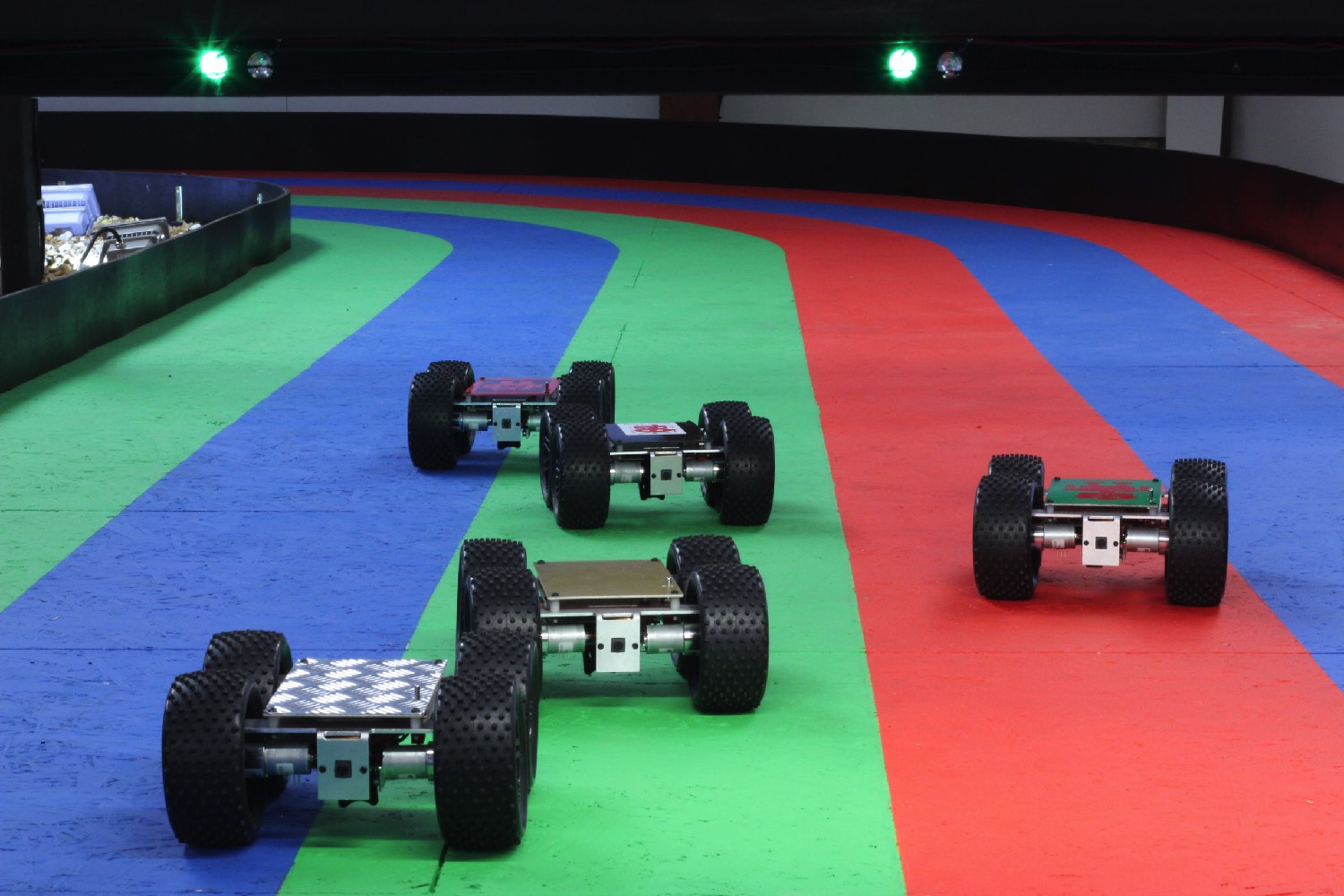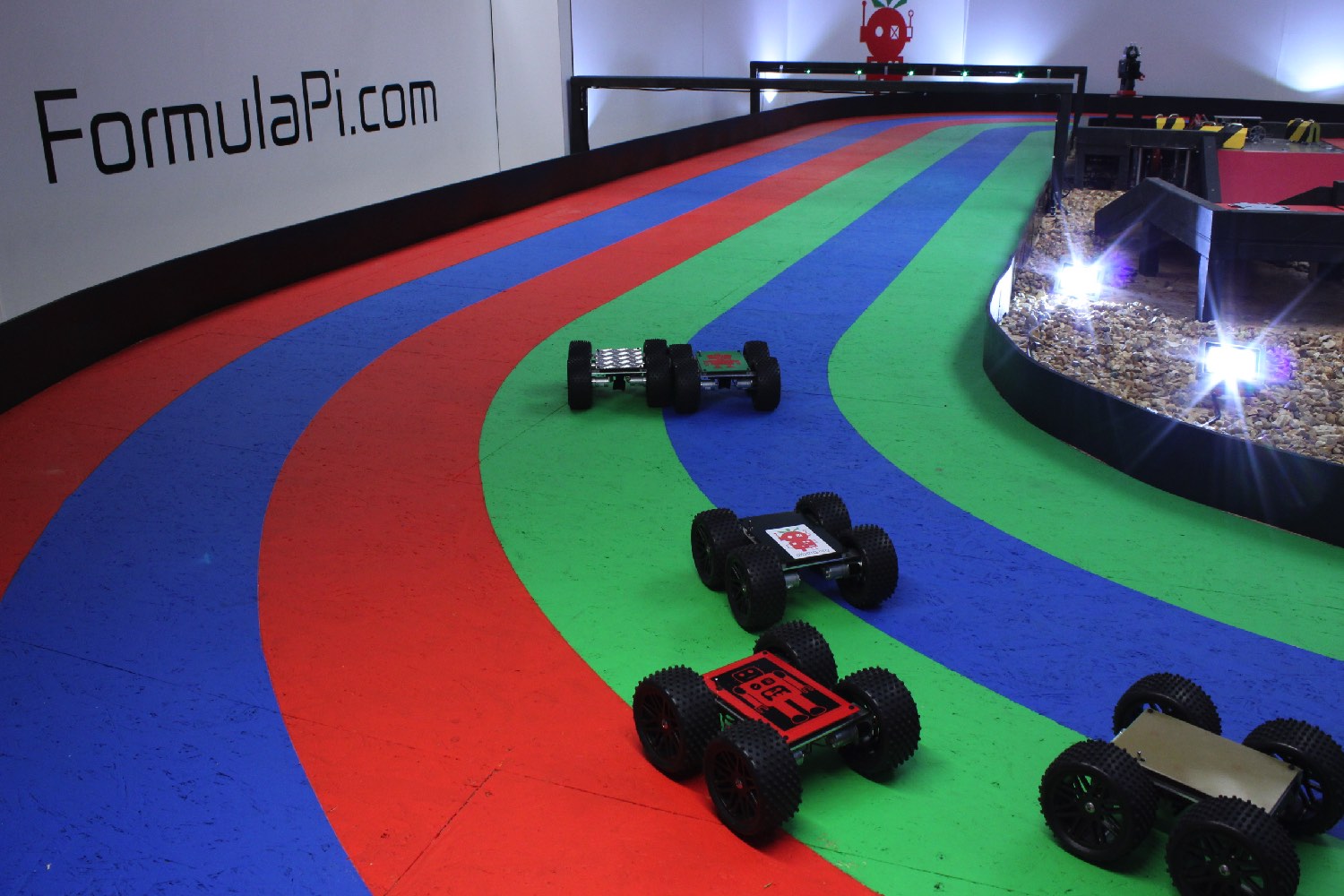But before safety-minded folk get too worried, let us explain: The cars in question are basically toy robots racing around a colorful 20-meter track. Bearing the Formula 1-inspired “Formula Pi” name, they’re powered with the help of a Raspberry Pi and the ingenuity of coders from around the world.
Oh, and the price is $46.
“Google’s self-driving car has $150,000 worth of computers and sensors in it,” PiBorg creator Timothy Freeburn, an engineer with a background working for companies including McLaren Automotive, tells Digital Trends. “Our vehicles have a $5 Raspberry Pi Zero and a Raspberry Pi camera. That’s all.”
The idea of the project — which is in the middle of a Kickstarter crowdfunding campaign — is to stage a series of races that will be broadcast over the internet. For 35 pounds (the aforementioned $46 U.S.), you can sign up as a contestant and receive a customizable “lid” that you can decorate. Your other job is to write the code that will help your car race around the track as quickly as possible, without colliding with other cars. Then mail both over to the folks at PiBorg and sit back to watch how your autonomous vehicle does.
“It’ll make for some very entertaining races, when you’ve got some cars running one type of code and others running something completely different,” Freeburn continues. “The goal for the cars, and the hardware they’ve got to work with, is the same — but they’ll be driving in very different ways.”
Don’t worry if you’re not an expert coder, either. “We’re expecting that there will be a lot of people who are getting into this competition as a way of learning coding,” Freeburn notes. “We’re providing Python libraries of code that people can very easily use, and which they can then make changes to in order to create improvements. We’ll also have tutorials and explanations about how the code works, so that newcomers feel welcome.”
Just like a marathon, however, Freeburn hopes there will be a mix of skill levels involved. He is offering a prize for the person who writes the most interesting, original and successful code for completing the races. “We’re hoping we get some clever entries making use of tools like neural networks,” he says.
From here, Freeburn hopes the idea of autonomous toy car racing catches on, and he is eyeing possible future events being staged around the globe. For now, though, he’s sticking with Cambridge. “This is the first time anyone’s run anything like this anywhere, so it’s good that we’re on hand to troubleshoot,” he says.
You can get involved with the inaugural Formula Pi contest by checking out the Kickstarter campaign here.
